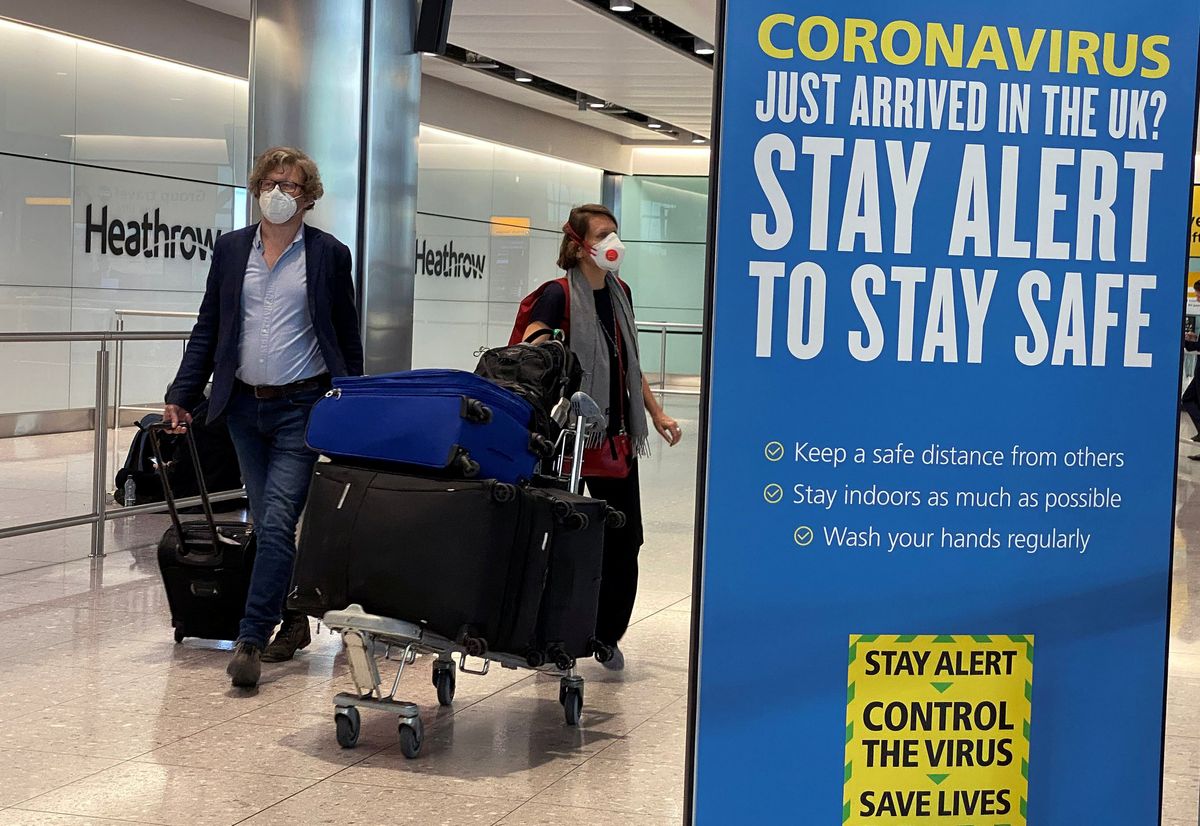Are “vaccination passports” the future of international travel?

A few minutes every morning is all you need.
Stay up to date on the world's Headlines and Human Stories. It's fun, it's factual, it's fluff-free.
The rollout of effective vaccinations promises relief to certain industries that have been relentlessly battered by the pandemic.
With the numbers of vaccinated individuals slowly rising around the United States, a tantalizing prospect has risen for the not-so-distant future – a return to relative normality.
A vaccine that has been proven successful, safe and is widely-available has long been hailed as the beginning of the end of the coronavirus pandemic, which to date has now killed nearly 340,000 in the US alone.
In recent weeks, the number of promising vaccine candidates has only expanded. Vaccines developed by American pharmaceutical giant Pfizer Inc. (in collaboration with German partner BioNTech SE) and Moderna Inc. appear to hold the most promise, reporting efficacy rates of over 90%.
Outside of the realm of public health, however, the rollout of effective vaccinations promises relief to certain industries that have been relentlessly battered by the pandemic.
Few industries stand to benefit more from a return to normality than the international airline industry, which suffered immensely from the coronavirus pandemic as it put an end to the majority of international travel.
But with promising vaccines on the way, governments and airline operators may begin to look at requiring “vaccination passports,” which will certify that an individual has been vaccinated for COVID-19 in order for airlines to return t business as (somewhat) normal.
Airline crash
By the end of February 2020, international flight frequency had already begun to decline as the coronavirus pandemic spread around the world.
By the end of March, as the virus began to spread quickly throughout the US, international travel was no longer feasible, with many countries around the world banning international travel to stave off the spread of the virus.
In total, air passenger traffic has slumped as much as 94% in 2020, as the pandemic has put a stop to most air travel.
As a result of a massive drop-off in business, airline carriers have borrowed record amounts to keep their businesses afloat. State aid to the airline sector has also surpassed US$220 billion according to the International Air Transport Association (IATA), with carriers projected to lose more than US$118 billion in 2020 and US$39 billion in 2021.
As a consequence of this, IATA Director General Alexandre de Juniac stated that “if there ever was an annus horribilis, this is it.” De Juniac argued that “nobody in aviation will ever be nostalgic for 2020.”
Vaccination passports
It comes as no surprise, then, that airlines are eagerly awaiting the results of mass-vaccination programs that have begun to get underway in several countries around the world.
Some in the airline industry have already begun to speak openly of their efforts to incorporate vaccinations into their business plans moving into 2021.
Alan Joyce, the chief executive of Qantas, Australia’s largest airline, said that his carrier had been discussing the possibility of “vaccination passports” for international travelers that would allow airlines to begin offering regular services once more.
“We are looking at changing our terms and conditions to say for international travelers, that we will ask people to have the vaccination before they get on the aircraft,” Joyce told Australia’s Nine Network.
As recent developments in the United Kingdom show, countries still view international travel as a prime vector for coronavirus transmission, with several European nations banning travel from the UK following news of a more-infectious variant of the virus.
A successful vaccination program and “vaccination passports” would help to alleviate worries of international travel potentially spreading the virus. Such a move would also not be without precedent.
Past pandemics, such as the multiple outbreaks of yellow fever in the 1960s, have required international travelers to possess documents showing immunization and clean bills of health.
The Common Trust Network, an initiative launched by the Geneva-based nonprofit The Commons Project, in collaboration with the World Economic Forum, has partnered with several large airlines around the world to provide a 21st century “vaccination passport.”
This “CommonPass” would take the form of a mobile app that would allow users to upload medical data such as a COVID-19 test result and, eventually, proof of vaccination. These results could then be shown to authorities to allow international travel.
The app would seek to create a standardized system by which passengers could prove that they’ve been immunized, allowing airline carriers to return to regular business after a difficult downturn during the pandemic.
According to Dr. Brad Perkins, the chief medical officer at the Commons Project Foundation, “this is likely to be a new normal need that we’re going to have to deal with to control and contain this pandemic.”
Despite this, there are lingering concerns over the technology.
Professor Michele Goodwin, a law professor and director of the Center for Biotechnology and Global Health Policy at UC Irvine, told The New York Times that “protecting public health has historically been used as a proxy for discrimination” with electronic “vaccination passport” apps having the potential to be used as “proxies for keeping certain people away and out.”
Ultimately, having faced an unprecedented downturn as a result of the pandemic, the airline industry will be looking toward any available avenues through which regular operations can be restored.
But for many, a privately-developed app which shares medical information with large airline industry operators to permit international travel may be a step too far for a “new normal.”
Have a tip or story? Get in touch with our reporters at tips@themilsource.com




Comments ()